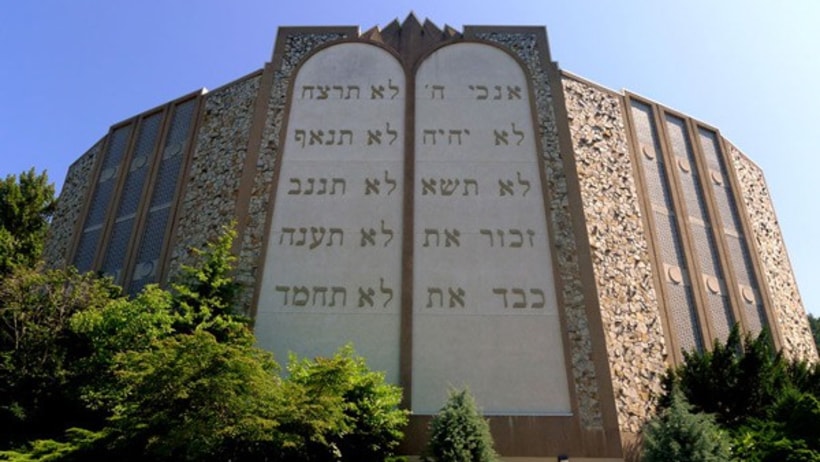Oasis Songs: Musings from Rav D
Friday, May 18, 2018 / 4 Sivan 5778
No Mishnah Berurah class this Sunday. It is Shavuot
Summary: Rabbi Kosak reflects on the meaning of Shavuot.
Creation, Redemption and Revelation
With Shavuot coming this weekend, this week’s reflections will be curtailed. Please do make an effort to attend our many Shavuot offerings–we’ve worked hard to ensure that there are opportunities for all. From family and youth programming, to traditional learning on Saturday evening, to cooking demonstrations and even a lecture on Jewish cuisine on Sunday evening. There’s a lot going on.

A few short reflections on Shavuot itself. It is the third of our three festival or pilgrimage holidays when our ancestors would celebrate by coming together at the ancient temple. On the spiritual level, it also completes a path of meaning that begins on Rosh Hashanah and Sukkot, then continues on Pesach/Passover, before concluding on Shavuot. This path carries us from creation (Rosh Hashanah), to redemption (Passover) and finally to the revelation that occurs on Shavuot when we received the Torah.
These three themes of creation, redemption and revelation encapsulate so much of Jewish thinking. There is a way they even track the famous insights of psychologist Abraham Maslow and his “hierarchy of needs.”
According to Maslow, each of us needs to meet our most basic needs, like food, shelter and life itself. As we satisfy those requirements, we continue in our development, ending for Maslow in self-actualization.
For Judaism, a similar if parallel message is being taught to us.
Creation–of the universe, of daily life, of humanity and the Jewish people–is the most basic gift and need that a loving God provides to us.
Yet creation without redemption–freedom from all that binds us is an impoverished existence. Freedom is an innate need of human beings–and an intended gift that God wishes upon all beings. There is something of Maslow’s self-actualization in this–for Judaism teaches that we also need freedom for. That is one understanding of revelation. By encountering God and receiving the Torah at Mt. Sinai, we discover the purpose of our freedom and the meaning of our lives.
Even this is not the final destination of the human spirit. For revelation also teaches of the human need for transcendence. It is not enough to meet our own needs, no matter how elevated they are. We also have a yearning to connect to all that lies beyond us. To know our small and significant place in the vast cosmos. To experience how we are part of all, not as an intellectual expression, but as a felt moment.
Creation, Redemption, Revelation.
In our lives, as in Maslow’s psychology, we can sometimes hit a dead end. We may not successfully navigate each phase of our lives and imagine that nothing exists beyond our current limited stage. Life can stunt our growth. Sometimes we might even be skeptical that those higher levels of being exist simply because we can’t reach them. In that case, our spiritual ambition is also stunted.
That why a spiritual path like Judaism is so important, and why our holidays are so important. They remind us of all that we can be, and more importantly, can guide us to explore the full and rich possibilities of being human.
Shavuot may not be the most known or observed of the Jewish holidays. A traditional reason given is that it lacks the tangible symbols of the other festivals. I suspect another reason is that opening ourselves to revelation requires the greatest amount of effort and imagination. It may also be the ultimate purpose of life.
Shabbar shalom,
Rav D
Shabbat Table Talk
- What is the highest good you imagined for yourself as a child? Did you achieve it?
- What is the greatest good you can conceive of reaching at this phase of your life?
- Everybody has moments of revelation. Some are grand and some are basic. Describe some of the revelations you have had–in work, in love, in relationship to God.
If you’d like to continue this discussion, follow this link to CNS’s Facebook page to share your own perspectives on the topics raised in this week’s Oasis Songs. Comments will be moderated as necessary.



